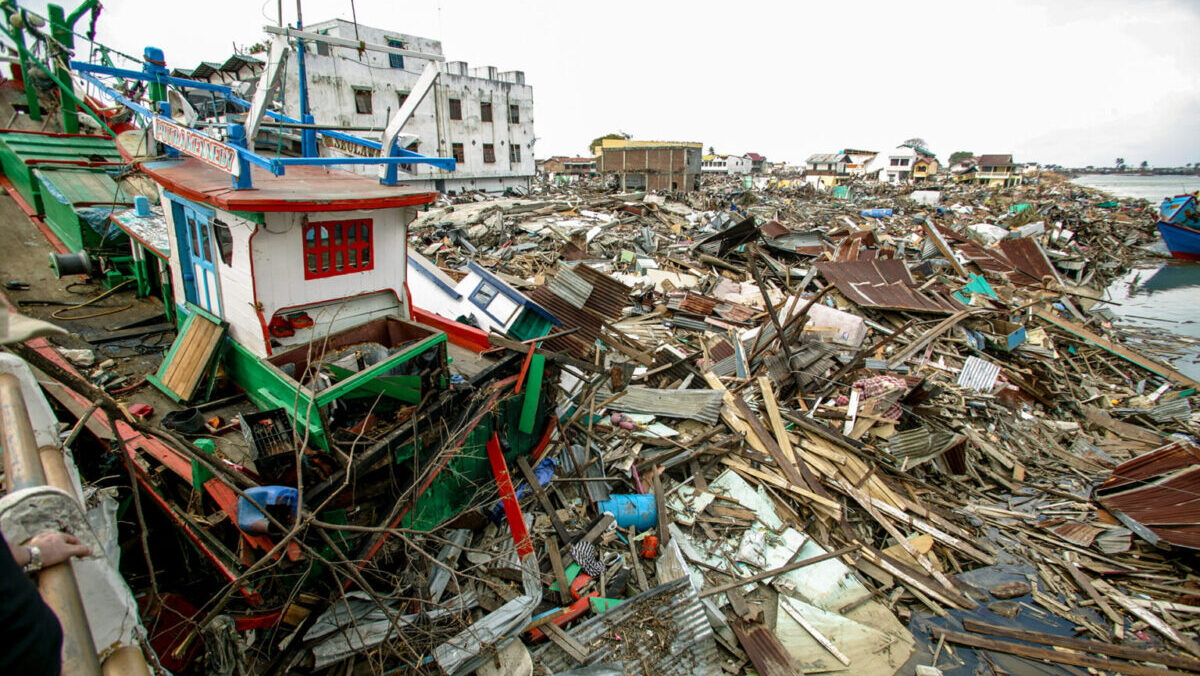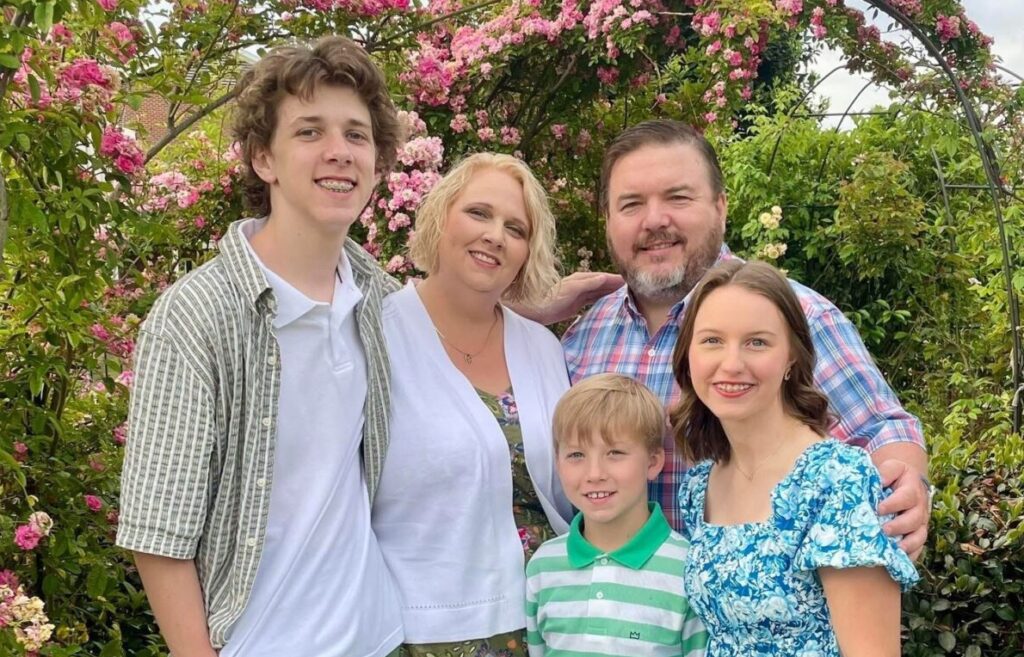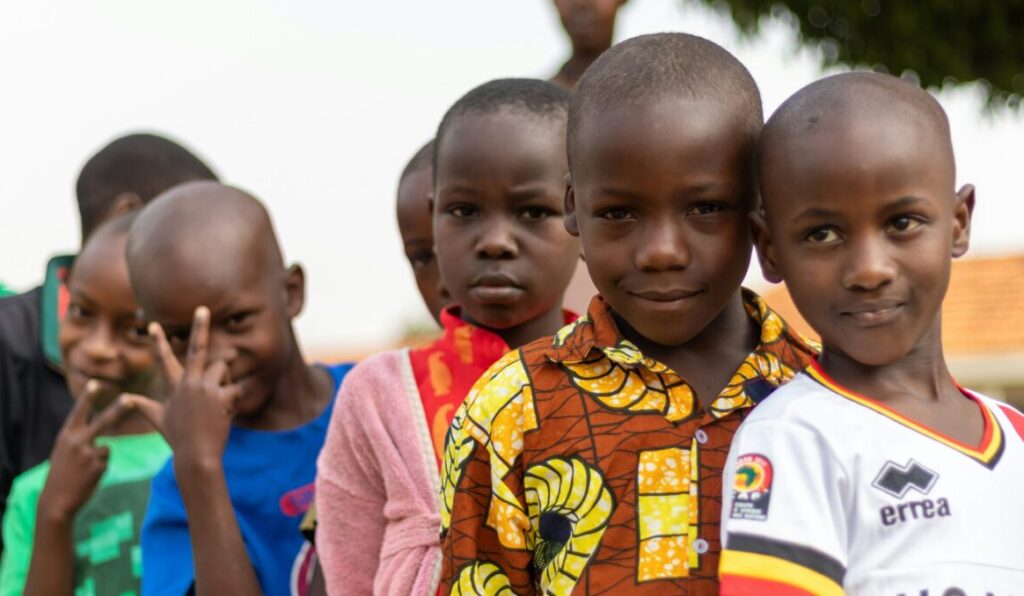On the morning after Christmas Day in 2004, the coast of Northern Sumatra, Indonesia, was filled with thousands of people fishing, playing with friends and preparing resorts for guests.
They had no idea that 100 miles away, deep in the Indian Ocean, two tectonic plates had collided with enough force to create a massive earthquake and send a tsunami hurtling towards shore.
RELATED: For more stories about international missions, click here.
By the time it reached Sumatra’s coast, the waves reached over 100 feet in some areas. When it crashed down, the bustling, beautiful coastline was reduced to death and destruction in mere moments.
Ripple effect
The tsunami rippled across coastlines throughout Asia. It would prove to be the deadliest in recorded history, according to the National Oceanic and Atmospheric Administration: approximately 230,000 people across 17 countries died.
For Jerry Rankin, who was president of the International Mission Board at the time, there was a deeper layer to the tragedy beyond the physical devastation. The areas that were hardest hit were also areas where gospel seeds had fallen on very hard ground.
Northern Sumatra was a Muslim stronghold. It was the only province in the country where Sharia law was in effect. Due to civil war, no IMB workers had access to live there despite years of prayer. Southern Thailand was one of the country’s least-reached regions. And in Sri Lanka, war had forced IMB workers to evacuate.
Heartbroken and angry
Rankin was heartbroken and angry. He knew that the vast majority of those 230,000 souls had died with no chance to hear the gospel.
“All I could think of as I thought of the people who died was the cry of the disciples on the storm-tossed sea: carest not that we perish?” Rankin wrote in an editorial for Commission Magazine’s Summer 2005 edition. “Where were we that all these people were swept into eternity without Jesus?”
Rankin was not alone in his heartbreak. In the months and years that followed, IMB workers were on the ground helping communities rebuild. Thousands of volunteers from Southern Baptist churches served alongside them, and more than $12 million was donated to Baptist relief efforts.
Now, two decades later, it is clear God was at work amid the devastation.
“Disasters of this magnitude open up a very narrow window of opportunity, and when that happens, we need to be ready to respond,” said Jeff Landry, Send Relief area director for the Asia-Pacific Rim. He coordinated the disaster relief response across Asia.
In Sumatra, God provided incredible access for missionary presence in an area previously closed to foreigners. The government allowed Non-Governmental Organizations (NGOs) a five-year window to operate in the province and help the community rebuild.
In the immediate aftermath, volunteers flooded the area. At the peak, there were 100 Southern Baptist volunteers arriving every week to help. They were willing to do what many were not: help find and recover bodies from the rubble.
Landry remembers being nervous to ask the first volunteer team to help with this. But when he did, one team member raised his hand and said, “It’s my first mission trip, but I’m a mortician.”
It was hard, traumatic work. Bryan Mitchell, who was leading IMB work in Sumatra at the time, remembers a volunteer picking up a body that had already begun to decay. Yet, their willingness to help in this way spoke volumes to the community around them.
“They saw us not just as an NGO that was Western or Christian, but as an NGO that really loved their people,” Landry said.
Bridge to share gospel
In the years that followed, IMB workers remained in the province using community development as a bridge to share the gospel. Though they had many opportunities to share, the hearts of Indonesians remained hard. Most Indonesians saw the tsunami as evidence they were not good enough Muslims.
Despite the challenges, some Indonesians did come to faith. Additionally, IMB workers were able to begin mobilizing Indonesian churches from other provinces to send believers to Sumatra and create platforms to sustain access there.
“Our people loved well and sacrificed much to live in that community,” Mitchell said.
Brad Kingston was one of the IMB workers who lived in Northern Sumatra during the five-year window foreigners were allowed there. He remembers ministry in that season as incredibly meaningful.
“It was a unique window in time,” he said. “We had five years to run hard. There was a great openness because these areas had been so closed before.”
Though the spiritual ground remains hard in Sumatra, in the aftermath of the tsunami, God broke new ground. Believers have sown more gospel seeds there in the last 20 years than ever before.
In Southern Thailand, several thousand people died, and many more were displaced. The government set up temporary shelters for those who lost homes.
After initial recovery efforts, Send Relief provided one food item a day for a year to those displaced. Just as in Indonesia, meeting humanitarian needs gave volunteers and missionaries open doors to share the gospel.
Landry remembers going to deliver food to an elderly lady in a shelter who had lost her home and her entire family in the tsunami.
“I’m so sorry,” he told her.
“I’m not,” he remembers her replying. “If the tsunami hadn’t happened, you all never would have come here to share about Jesus with me.”
One volunteer team shared the gospel with their taxi driver, a devout Buddhist. He not only repented and believed but also became a pastor and planted a church.
Thailand is still less than 1% Christian, and most of those Christians are concentrated in the north. New believers and a new church in the south is something only God could bring out of this kind of tragedy.
In South Asia, God was also at work. IMB workers were able to regain access to Sri Lanka and work together with volunteer teams to distribute a massive amount of food.
Church-planting efforts
Additionally, Southern Baptist disaster relief efforts in South Asia led to church-planting efforts.
In the 20 years since the Indian Ocean earthquake and tsunami struck Asia, natural disasters haven’t stopped. More than that, in South Asia and the Asia-Pacific Rim collectively, over half a million souls enter into eternity without Jesus every week. That’s the equivalent of two 2004 tsunamis every week.
And yet, Landry believes all that God did in the tsunami’s aftermath is abundant evidence for the global church to continue trusting that God will work in power when they come together to love a hurting and broken world.
“God provided in miraculous ways,” he said. “So much good came out of this tragedy.”
To read full story and ways to pray, click here.
Some names changed for security reasons
EDITOR’S NOTE — This story was written by Stella McMillian, who serves with the IMB in Asia, and April Bunn, director of IMB’s prayer office and originally published by the International Mission Board.






Share with others: